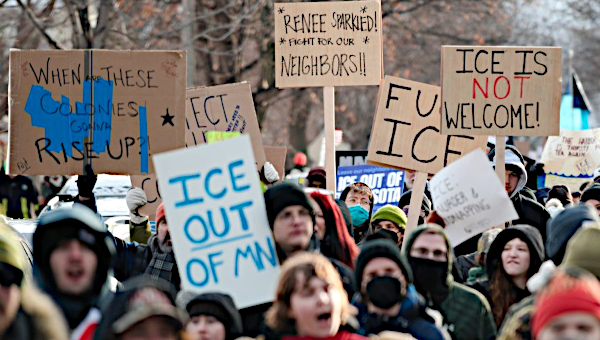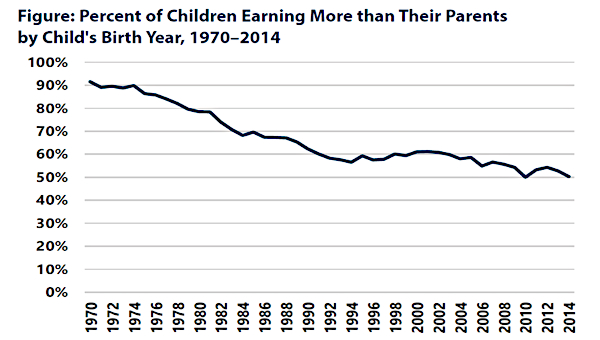A debt crisis in Europe, an electoral campaign in the United States, and Canada watching from the sidelines; this is how the trans-Atlantic world was depicted in the media over the past months. Though the votes had not yet been counted, warnings suddenly emerged about a fiscal cliff. In order to keep discussions of budget policy out of the campaign, the Republicans and the Democrats agreed on a pact earlier this year, which increased the debt ceiling of the federal government to the point that drastic spending cuts or tax increases could be postponed until after the election. If, however, the parties in Congress cannot agree on another budget by year’s end, expenditures throughout all departments will be automatically cut and the tax reductions provided by Bush and Obama in previous years will be revoked.

Economists, who are less interested in the electoral outcome than the headline craving media, have been pondering over their models and reams of data in the past few months, in order to assess the effects of the fiscal pact on the U.S. and global economies. Their virtually unanimous conclusion: Stepping on the debt-brake will lead directly to the next global economic crisis. Tax losses coupled with state support for the unemployed, for non-performing loans and for failing firms, would tear new holes in public budgets. The debt-brake would likely turn into a debt-accelerator.
Concerned about economic and social stability in their own countries, governments and corporate leaders around the world are hoping Obama will be able to negotiate a compromise between the Republican dominated House of Representatives and the Democratic majority in the Senate, which will simultaneously make possible both growth and budget consolidation. Without the locomotive of American stimulus spending the Chinese export-boom cannot continue, nor can the European debt-crisis be contained. Needless to say, the Canadian economy would be drawn into another U.S.-triggered recession as well.
World Accumulation Stalled
Although the global economic crisis of 2008/09 had its origins in the USA, whoever believed this would lead to the rise of new leading powers in Europe or Asia was mistaken. The heart of the global economy continues to beat in America – albeit with a weak pulse. For about three decades the troika of Wall Street, the U.S. Treasury and the Federal Reserve has driven global capital accumulation with a combination of tax decreases, cheap credit and over-valued securities. This financial cocktail provoked fiscal and debt-crises in many parts of the world and with it created new fields of investment for private capital.
The privatization of public services and utilities in the West, of state-led development projects in the Global South; the eventual integration of the former Soviet Empire and of the newly capitalist Sino-communism into the global capitalist market, have been the most important sources of capital accumulation since the 1980s. To this can be added the investments into global production and distribution networks, which permitted industrial capital to pit workers in different regions and jurisdictions against each other to cut the cost of labour power in order to meet the rates of return demanded by finance capital.
From the West European fiscal crisis of the 1970s, to the debt-crisis in Latin America and Africa at the beginning of the 1980s; and the Asian crisis at the end of the 1990s, a track of finance-market driven accumulation extended across the globe; and then, with the Wall Street crash of 2001, returned to the centre of global capital. Thereafter global accumulation was no longer sustained by outward expansion, but rather by a real-estate boom in the United States. Indeed, without the indebtedness of private American households the German-Chinese race to be the global export champion would have been unthinkable. However, financial crises, which previously played an important role in opening new markets, this time rebounded on the centre with the onset of the real-estate crisis of 2008.
American Debt and Austerity
In the course of the ensuing financial and economic crisis American state debt achieved levels that could easily keep pace with the crisis hit states of the European periphery. Were the United States still not regarded as the, possibly unpopular, but nevertheless irreplaceable centre of global capitalism, the Euro-troika would have long ago sent Obama an austerity package instead of having their hopes for growth pinned on him. Despite the continued leadership role of the United States, the policies that had previously favoured the interaction of crisis and accumulation became dysfunctional in the course of the crises that began shortly before Obama’s first election. The required private rates of return and debts can no longer be serviced, as in the previous three decades by outward expansion, and are thus threatened with depreciations and write-offs. To be sure, nonperforming loans can continue to be transferred off of private balance sheets and onto public budgets.
Private creditors are nevertheless increasingly asking themselves whether the public sector is able to collect the necessary funds to meet their requirements, or if the central bank is printing money of declining value for this purpose and thus carry out an indirect devaluation of outstanding debt claims. The global economy is hence not only plagued with over-capacities and weak demand, but also by an overhang of unrecoverable debt. Is there a political way-out of these calamities?
“In contrast to sales taxes, a higher taxation on wealth and un-invested earnings would not undercut any demand and could thus contribute to debt reduction or to the financing of demand stimulating state spending.”
Spending cuts could redirect ever-scarce public funds toward debt reduction and higher taxes could even pour additional money into public coffers. Yet this is precisely the fiscal cliff economists are warning about. In contrast to sales taxes, a higher taxation on wealth and un-invested earnings would not undercut any demand and could thus contribute to debt reduction or to the financing of demand stimulating state spending. Nevertheless, this Keynesian thought experiment fails due to the political resistance of the owning classes who view tax-cuts as an entitlement, from which they cannot separate themselves, even if their unpaid taxes go into questionable investments, inflating a bubble in the government bond market.
Together with his European colleagues and Canadian Prime Minister Stephen Harper, the re-elected U.S. president shares the dilemma of having to consolidate the state budget, while not being permitted to collect the necessary taxes to do so. Should European politicians believe, however, that the Euro-crisis could be solved by means of a political union, they might want to take a look across the Atlantic.
The United States is a union, as is Canada, in which the states and provinces are liable for each other; and in which even the anti-state activists of the Tea Party never once demanded the expulsion of over-indebted states from the union. The problem is that such a policy, as is being pushed for by the owning classes, for simultaneous tax cuts and debt reductions, would lead to renewed crisis and a surge in debt. This would still be the case if the Eurozone, or even the entire EU, developed further into the United States of Europe.
Obama Follows Merkel?
Obama is facing exactly this problem and is likely to soon find himself in a similar role to German chancellor Angela Merkel. Some people charge the latter with sacrificing monetary stability and tax revenues on the altar of European monetary union. Others claim she is risking European unity on behalf of German competitiveness. She pleases no one, yet is nevertheless popular. Obama might therefore be tempted to Merkel his way through his second term. Spend just enough money to avoid a recession but save enough to maintain confidence in American government bonds. In this way, if things go well, he can survive an entire term but the crisis will not be surmounted.
Four years ago Obama achieved an impressive electoral victory in the name of “change.” With great difficulty a disillusioned electorate confirmed him again with the office of President. However, Americans who take him seriously about “change” must look for it outside of the White House. They may take inspiration from the anti-austerity strikes and protests that swept the Euro-zone on November 14. Many such struggles were organized since the Euro-crisis hit in 2010, but November 14 was the first Europe-wide day of action organized by activist groups and the trade unions. •
Translated from the German by Sam Putinja.





